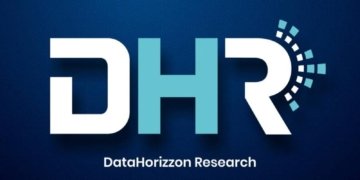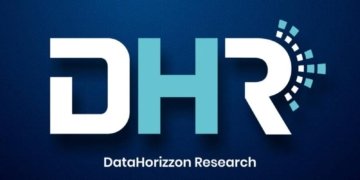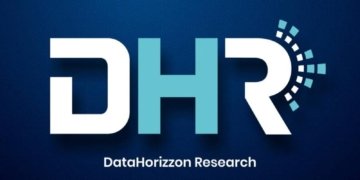NEW YORK, Oct. 27, 2025 (GLOBE NEWSWIRE) — Ramsey Theory Group (RTG), a research-driven technology firm led by CEO Dan Herbatschek that specializes in applied mathematics, artificial intelligence, cybersecurity and software development, today issued guidance for professionals and job-seekers on how to prepare for what Herbatschek identifies as “a definitive shift in hiring priorities”—the demand for AI fluency across industries.
“Employers are no longer asking if you know AI, they’re asking how you will use AI to drive value,” said Herbatschek. “Whether you’re applying for a new job or aiming for an internal promotion, you must build genuine fluency in AI and its business applications—not just pass a short course or add a keyword to your résumé.”
Why AI fluency matters
Herbatschek and the Ramsey Theory Group team point to several converging trends:
- The rapid shift of enterprises across automotive retail, supply-chain, skilled trades and digital services toward embedded AI solutions means hiring managers are seeking talent that understands not just the buzzword “AI” but how to apply it in workflow, analysis, and decision-making.
- Candidates who can bring a “translate-and-execute” mindset—bridging business objectives with technical execution—are rising to the top of screening processes.
- Internal mobility is increasingly linked to AI readiness: employees who demonstrate AI literacy and a growth mindset become strong contenders for promotion as organizations pivot their operations.
- The most in-demand professionals combine domain knowledge (industry, functional role) with an ability to engage, experiment and learn in AI-enabled environments.
Best next steps for promotion or job-seekers
Herbatschek recommends a structured three-phase plan to build real-world AI fluency:
1. Build foundational fluency (0–3 months)
- Take a quality introductory certificate in machine-learning or AI-for-business (e.g., data-analysis tools, Python basics) and complete a concrete project you can discuss in interviews.
- Read 2-3 case-studies of how your target industry is adopting AI (for example, automotive retail C-suite interviews, supply-chain predictive analytics) and note where you see gaps or opportunities.
- Update your résumé and LinkedIn profile to reflect how you used the tools or insights (e.g., “Used Python to automate report generation, reducing manual effort by 40%”).
2. Demonstrate applied fluency (3–9 months)
- Pick a business or process challenge (in your current role or a volunteer project) and prototype an AI-driven solution or dashboard. Document your steps: data ingestion, model/insight generation, business outcome.
- Share the results internally (for promotion) or externally (for a job) with a clear explanation of value delivered (“enabled decision-making, reduced cost, improved responsiveness”).
- Enroll in an intermediate/advanced AI course that links machine-learning to domain business (industry-specific verticals: automotive, logistics, skilled trades, etc.).
- Begin engaging with AI governance, ethics, data-bias, and operationalization—differentiators in today’s screening process.
3. Position yourself as a strategic AI collaborator (>9 months)
- Seek mentorship or build a peer-group focused on AI adoption in your domain: ask smart questions, propose incremental AI pilots, document results.
- Identify how your current or target organization could embed AI (business workflow, decision-support, automation) and draft a mini-road-map you can present. This signals you’re not just tech-curious—you are business-oriented and initiative-driven.
- Consider an internship, fellowship, or part-time role that gives you front-line exposure to AI product development, analytics engineering, or cross-functional strategy.
- Position yourself for a role where you own a small AI or data deliverable (not just “assist”)—this enables you to show impact, leadership, and readiness for promotion.
How Ramsey Theory Group supports the talent pipeline
In alignment with its mission to develop deep mathematical and AI fluency in emerging professionals, Ramsey Theory Group offers two key programs:
- The Dan Herbatschek Scholarship: Founded by Herbatschek, this scholarship provides financial aid, mentorship, and hands-on internship eligibility for students—especially from non-traditional or under-represented backgrounds—pursuing mathematics, machine learning and AI.
- Fall Internship Program: RTG’s selective internship offers college-level students the opportunity for real responsibility in tracks such as software/AI, data engineering, cybersecurity, product design, and digital marketing. Interns work alongside seasoned practitioners and gain meaningful project experience that strongly positions them for full-time roles.
Herbatschek added, “We are committed not only to delivering technology solutions, but to building the next generation of thinkers, builders, and collaborators in AI. Our scholarship and internship programs are designed to empower individuals who might not follow a traditional path — because innovation often comes from those with curiosity, resilience, and non-linear journeys.”
About Ramsey Theory Group
Ramsey Theory Group is a technology firm specializing in software development, artificial intelligence, IT & cybersecurity, digital marketing, and product development for the manufacturing, automotive, and skilled-trade industries. Founded by Dan Herbatschek, the company leverages applied mathematics, engineering and strategic consulting to help enterprises optimize workflows, secure their operations, and build resilient technology platforms. With its deep expertise across cloud security, hybrid infrastructure, and enterprise risk management, RTG is well positioned to guide organizations seeking to withstand the next major cloud event.


















